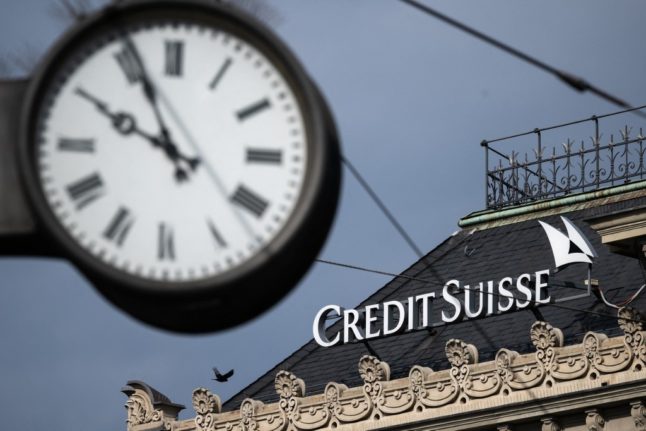“We are not a penal authority but we are exploring the corresponding possibilities,” said Finma chair Marlene Amstad was quoted as saying in an interview with Swiss weekly NZZ am Sonntag.
Switzerland, whose vibrant banking scene is a key part of the country’s culture, has been shocked to the core by the enforced merger of Credit Suisse with UBS at the government’s behest.
A number of observers have voiced fears the new entity emerging from the shotgun marriage will be not so much too big to fail as too large to succeed — even though the SNB central bank maintains the merger avoided triggering a wider banking crisis.
Amstad — who noted the new entity’s capital and liquidity demands would need to grow progressively in accordance with its new size — did not hold back on criticism of the culture which had led to its predicament.
READ ALSO: Swiss sweat over size of new superbank
The upheaval adds to wide banking turbulence caused by the recent collapse of three US banks.
“The problems were not limited to a sole part of the business but spread across various sectors of the group and an expression of an all round inadequate culture of risk,” Amstad added.
He said this translated into a general lack of accountability.
She acknowleded “the bank doubtless has very many employees who work reliably and correctly”, but said this had not been enough.
Credit Suisse chairman Axel Lehmann had sought to pin some of the blame for the bank’s woes on social media, something Amstad rejected.
READ ALSO: How Switzerland reacted to shock UBS buyout of Credit Suisse
“The social media storm was clearly not the cause of the problem at Credit Suisse. These go back a long way.
“The causes were various scandals and mistakes by management in recent years,” she said.
“The bank was already in a crisis of reputation and confidence. At the end of the day, (Credit Suisse) failed because of numerous scandals and bad management decisions.
“The bank’s management cleaved for a long time to a high-risk strategy but was not able to deal with those risks in adequate fashion.
“The problems went on for several years,” Amstad said, adding she was “not naming names.”
Some sector observers have blamed the authorities for not acting sooner but Amstad said Finma had been working behind the scenes and that its actions were not always made public.
She concluded by stressing: “A deficient enterprise culture and strategic appreciation errors on the part of management cannot be totally eliminated by strict regulation.”
READ ALSO:



 Please whitelist us to continue reading.
Please whitelist us to continue reading.
Member comments